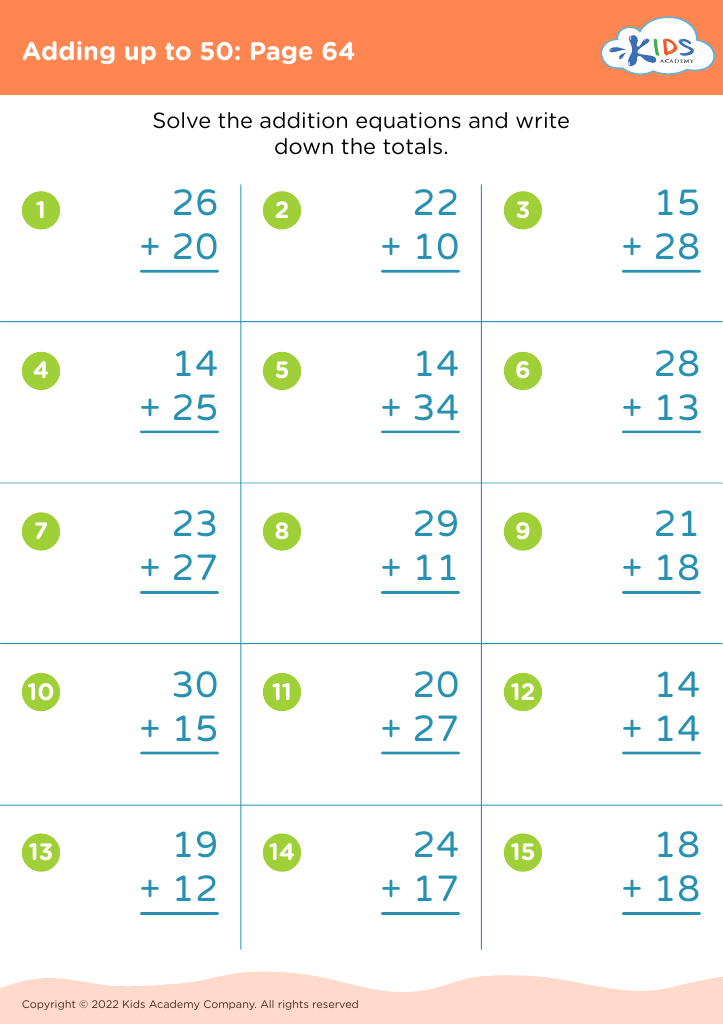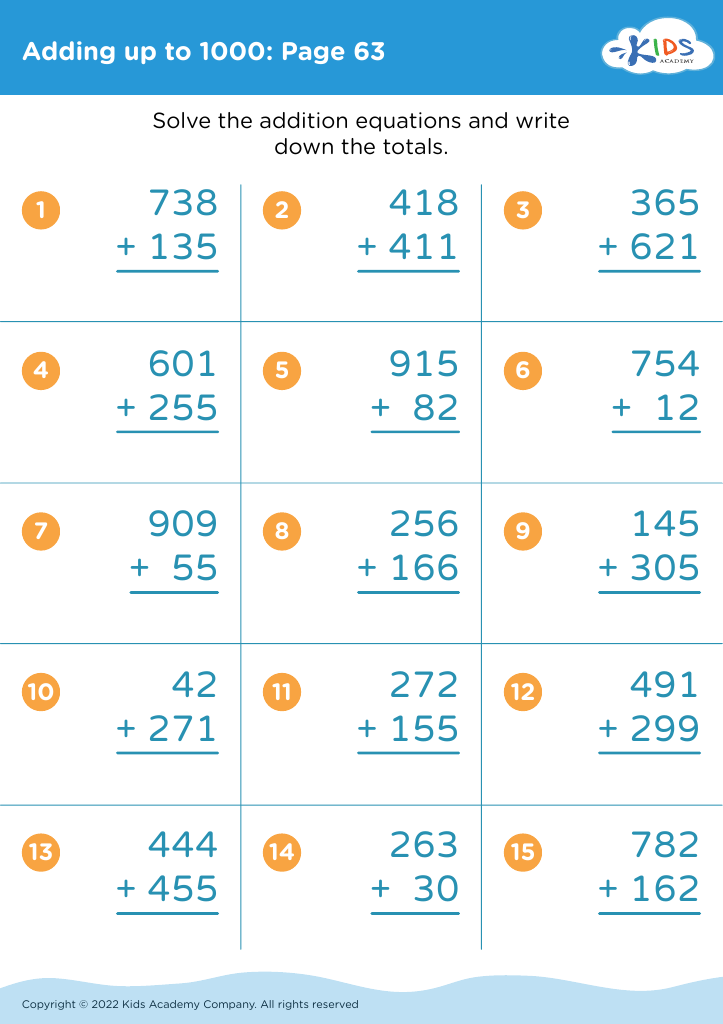Comparing numbers Addition Worksheets for Ages 4-8
4 filtered results
-
From - To
Enhance your child's arithmetic skills with our Comparing Numbers Addition Worksheets for Ages 4-8! Perfect for young learners, these engaging and educational printables help children understand basic addition and number comparison. Designed to make learning fun and interactive, each worksheet encourages kids to compare sums and build a strong foundation in math. Ideal for classroom or at-home practice, our worksheets cater to various learning styles and skill levels, promoting confidence and accuracy in mathematical thinking. Start your child's journey towards mathematical excellence with our expertly crafted worksheets designed to inspire a love for numbers!
Teaching children to compare numbers and understand basic addition between the ages of 4-8 is crucial for their early cognitive development. At this stage, their brains are highly receptive to learning foundational math skills that will be vital throughout their education.
When children learn to compare numbers, they develop a sense of numeracy, understanding the concepts of "greater than," "less than," and "equal to." This ability extends beyond math; it enhances their logical thinking and decision-making skills. For instance, distinguishing between the quantities of options can help them make everyday choices more rational.
Mastering basic addition has equally significant impacts. It solidifies their ability to perform simple arithmetic, which is foundational for more complex operations like subtraction, multiplication, and division. Early addition skills also foster an understanding of the relationship between numbers, helping children see how numbers are constructed and deconstructed.
Furthermore, developing proficiency in these areas can boost children's confidence and reduce math anxiety. Early successes with numbers can lead to a more positive attitude toward math as they progress through their education. For both parents and teachers, focusing on these skills is an investment in the child's future academic achievements and practical life skills.




















